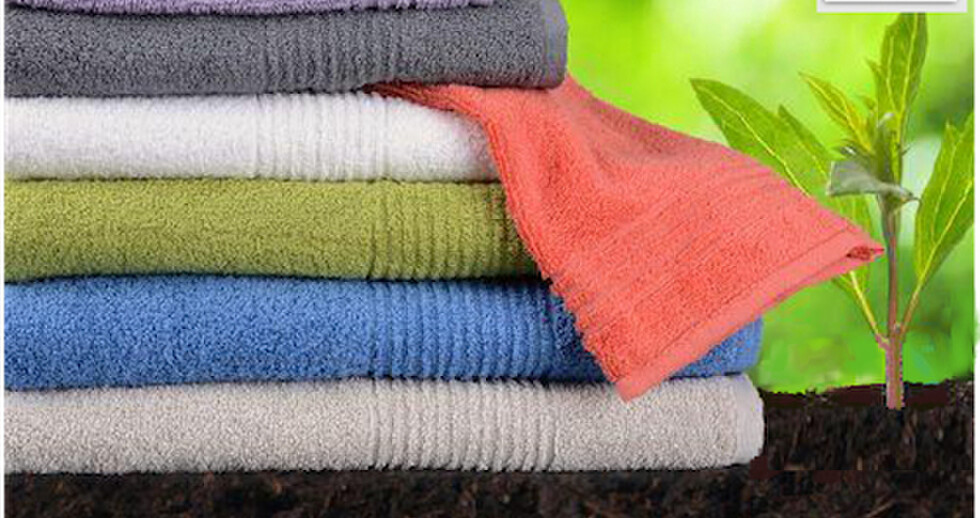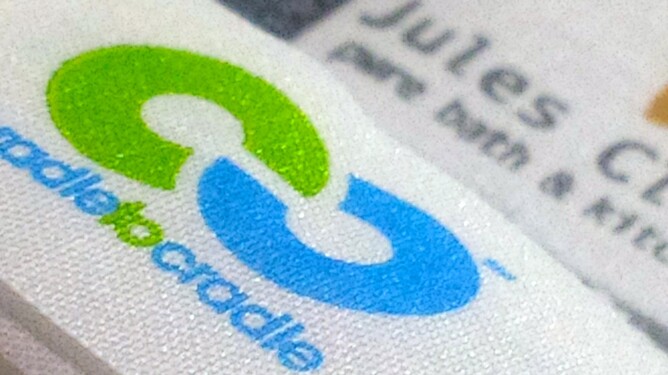A New Look at a Cradle to Cradle Business
A new online marketplace will make it easier for consumers to put Cradle to Cradle products in their shopping baskets. Photograph: INSADCO Photography/Alamy
When Paul Capel wanted to buy some new towels for his home he couldn't find any products that met his high environmental and ethical standards. Inspired by cradle to cradle pioneers Michael Braungart and William McDonough, and by the work of the Ellen MacArthur Foundation on the circular economy, Capel was looking for goods that would be good for both people and the planet.
“I knew there were companies out there making good stuff but I was frustrated that there wasn't an easy way to buy these things," he said. He and business partner Brendan Rowan decided to set up an online store to sell goods that support the circular economy. The result is Cradle to Cradle Marketplace, which sells only Cradle to Cradle (C2C) certified products – that is, products that have been designed with their entire lifecycle in mind.
The start-up venture has the approval of MBDC, the company set up by Braungart and McDonough to provide certification. C2C-certified products all go through rigorous tests for material health (that they have no negative impact on humans or the environment), material reuse, renewable energy use and carbon management, water stewardship and social fairness.
It is at present the only company focused solely on supporting the circular economy by bringing C2C products to the public. Capel explains: “It was the unavailability of products at a customer level that motivated me to set up the C2C Marketplace. There are already over 200 companies that have had products C2C-certified and a lot of work is being done at corporate and business-to-business level.
“There are lots of everyday items that are C2C certified, like towels, bathroom tiles, clothes, even toilet paper, but until now it has been difficult for customers to even know about these products, let alone buy them.
“That's why we are setting up a hub where the public can access these products and learn about what makes them special. We are starting by asking people to register on our website as C2C Marketplace 'pioneers'. The pioneers will be the first people to have access to products and will be the first to hear about special offers and new developments."
Its first products will be a range of towels made by family-owned Belgian manufacturer Jules Clarysse. The Infinity towels are biodegradable organic cotton. The sewing thread and label (which in a conventional towel would be cotton polyester) are also organic cotton. The dyes and even the ink used to print the labels are C2C-certified. Jules Clarysse's director, Peter Bauwens, explains: “When thread is cotton polyester you can't put it back in the biological cycle. So we developed threads that are 100% cotton and inks that are C2C-certified. That means the whole towel is 100% compliant to the biological cycle."
He adds: “We were already developing and investing in sustainability and then about five years ago, we saw a TV documentary about C2C and we thought 'Wow this is interesting. Let's do something'. So we entered and won a competition run by the Belgian government to create a C2C product. Two years later we had the Infinity towel." Jules Clarysse is the only company to make a C2C-certified towel.
The Infinity towel comes in colours more vibrant than one might expect from an eco-friendly product, including coral, green, blue and violet. “The reason it took two years to develop was that the pigment was a real challenge. The cotton was relatively easy but it was very difficult to make the different colours."
The result is a towel that can be composted, although the company hopes the fibres will be reused to make more towels. “Cotton is a renewable material. You can produce it every year in the same field. But production of cotton uses a lot of water. With C2C towels you can enormously decrease the impact of cotton production on the environment. That's why it is so important."
Capel agrees: “With C2C certification there is a guarantee that this stuff has actually been tested. We know that the dyes are not going to bio-accumulate and create problems in the human body or in water systems. The best way to support a circular economy in my opinion is to use C2C products because the ingredients have been tested to make sure they are safe to go back into the cycle.“
C2C Marketplace's next move is to launch clothing made by German manufacturer Trigema. It will also supply Method cleaning products as well as a range of products it describes as “C2C-inspired". These are from companies that cannot afford to go through the certification process but are making things from C2C certified materials.
Alice Grahame is an ex-BBC journalist now freelance with an interest in the circular economy and sustainability. Follow her @alicesangle

